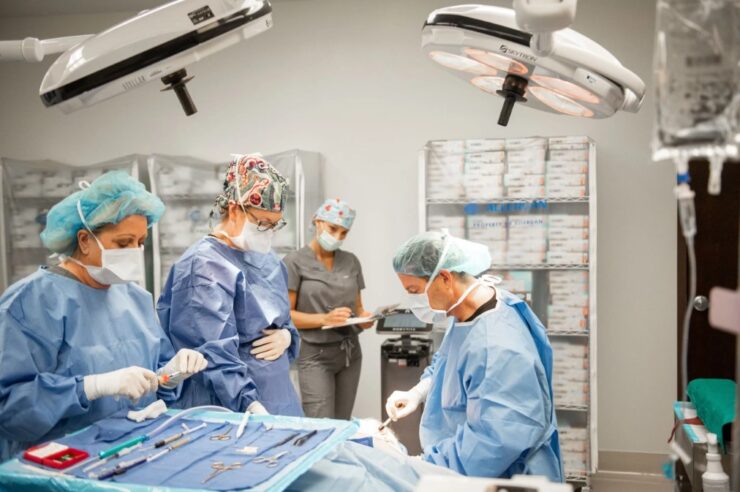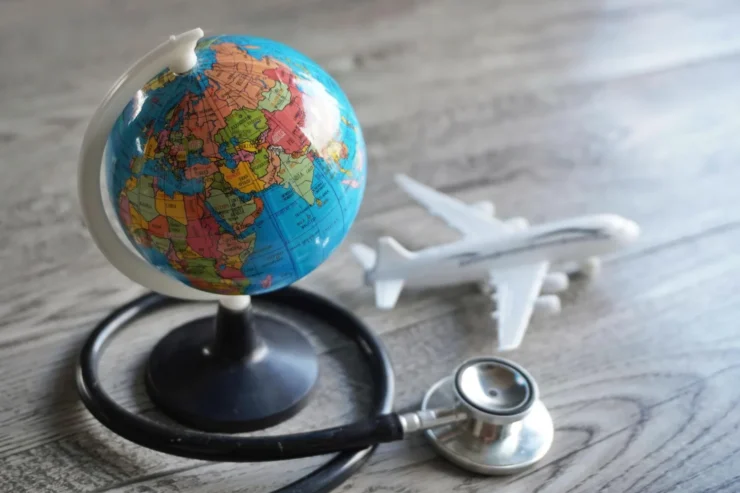Table of Contents
It’s not just celebrities quietly hopping on planes for plastic surgery anymore. More and more people in the U.S. are booking flights and passports right alongside their surgical consultations. And no, it’s not for a luxurious recovery in Paris or a beachside recovery in Tulum (though hey, that sounds nice). The real draw? Price. The kind of savings that make a $15,000 procedure cost less than half.
But is it worth it?
Let’s be honest: flying across the country, or across the world, for cosmetic surgery sounds wild to some. To others, it’s the only way they can afford a procedure that’s been on their wishlist for years. If you’ve found yourself debating a trip to Miami, Istanbul, or Tijuana for surgery, let’s talk through the real stuff. The savings, yes—but also the trade-offs, the logistics, the red flags, and the realities.
What’s Driving People to Travel for Cosmetic Surgery?

We’re not just talking about minor touch-ups or filler appointments here. People are flying for major surgeries, tummy tucks, BBLs, rhinoplasties, even full mommy makeovers. And it’s not just because they want a vacation tied to their surgery. It’s almost always about the bottom line.
A Quick Price Comparison
|
Procedure |
Avg. U.S. Cost |
Common Abroad Cost (incl. travel) |
| Rhinoplasty | $8,000–$15,000 | $3,000–$6,000 |
| Tummy Tuck | $10,000–$18,000 | $4,500–$7,500 |
| BBL (Brazilian Butt Lift) | $8,000–$12,000 | $3,500–$6,000 |
| Full Mommy Makeover | $20,000+ | $8,000–$12,000 |
Even with airfare and lodging, the savings can hit five figures. And in some cases, patients are even offered VIP packages, airport pickups, hotel stays, translators, meals, and a caretaker. That’s hard to ignore.
Where Are People Going?
Certain cities and countries have built reputations for being medical tourism hot spots. Each has its own niche and, honestly, its own pros and cons.
- Miami, FL ─ The unofficial U.S. capital of BBLs and body contouring. Affordable compared to LA/NYC, but crowded, and some clinics are volume-based factories.
- Tijuana, Mexico ─ Huge draw for dental and cosmetic surgery. Lower costs and proximity to the U.S. border help, but vetting is essential.
- Colombia/Brazil ─ Surgeons here are known for sculpting and aesthetics. Procedures tend to emphasize curves and dramatic results.
- Turkey (Istanbul) ─ Hair transplants, rhinoplasty, and body work are popular. Reputation for highly skilled surgeons at much lower prices.
- Poland ─ Becoming increasingly known for its regulated clinics and all-inclusive surgical packages.
Some choose to go even further into the EU for care from reputable, UK-trained surgeons. One quiet player in this space is Europe Surgery, where British and American patients head to Poland for affordable surgeries without cutting corners on standards.
Questions to Ask Before You Book Anything

If you’re considering traveling for cosmetic surgery, the goal is to minimize the “unknowns” as much as possible. Here’s what you should lock down first:
1. Who’s Your Surgeon?
- What are their qualifications?
- Are they board-certified in their country, and by whom?
- Do they have real, recent before-and-afters of patients with your body type?
2. What’s Included in the Price?
- Flights? Hotel? Aftercare?
- What’s the cost of additional nights if you need to stay longer?
- Who pays for follow-up visits or complications?
3. What Happens If Something Goes Wrong?
- Do they have a plan for complications?
- Is there a local hospital they work with?
- Will your U.S. insurance cover a complication related to an elective foreign procedure? (Spoiler: usually not.)
4. What’s the Recovery Setup?
- Are you staying in a recovery house or a hotel?
- Will there be a nurse or caretaker?
- Is the environment clean and private enough to rest?
The Real Hidden Costs (That No One Posts About on Instagram)

Let’s talk about the unglamorous side of long-distance surgery, because it exists. And it matters.
Extra Time Off Work
You’ll need more than a week or two. Between the surgery, travel, recovery, and any potential setbacks, budget at least 3-4 weeks, especially if you’re flying overseas.
Travel Insurance (Medical Coverage)
Most regular travel insurance won’t cover elective surgery. You’ll need a specific medical travel policy, and even then, read the fine print.
Companion Travel
Most clinics require you to bring someone with you. That’s another ticket, another set of meals, and more time off work, for both of you.
Revision Surgeries
Even top surgeons may suggest a touch-up. Will you fly back? Will it be discounted? Can someone local do it safely?
When It Can Be Worth It
All that said? There are some genuinely solid cases where going abroad—or even just out of state—makes real sense.
- You’ve done extensive research and found a highly reputable surgeon.
- The cost savings allow you to get a necessary (or highly desired) procedure that you couldn’t afford otherwise.
- You’re emotionally and logistically prepared for the recovery.
- You’re okay with some extra risk, and you’ve got a plan in place if something doesn’t go perfectly.
A lot of people come back from places like Poland, Turkey, or Colombia thrilled—not just because they saved money, but because the results were exactly what they wanted. Some international surgeons spend far more time with patients than busy U.S. clinics do. Others use techniques not as common stateside.
But the key? It’s never a quick, breezy trip. The ones who come back satisfied are the ones who treated it like surgery first, travel second.
A Quick Word on U.S. Clinics That Target Out-of-Town Patients

Before booking a flight to another country, don’t forget to check regional options. Cities like Houston, Dallas, Atlanta, and Scottsdale have clinics that specifically market to out-of-state patients. You might still save thousands just by leaving your zip code, without the added pressure of flying internationally.
Some U.S. surgeons even offer virtual consultations, pre-op labs done locally, and recovery hotel partnerships. It’s not quite the $3,000 Turkish nose job, but it may be a safer middle ground.
Bottom Line ─ Is It Worth It?
It can be.
The cost savings are very real, and in a country where insurance doesn’t cover most cosmetic procedures, affordability matters. Bad surgery isn’t exclusive to any one country, and great surgeons exist across the globe. But so do risks. If you’re thinking about long-distance travel for cosmetic surgery, the trick is being brutally honest with yourself:
- Can you afford the extra time and backup costs?
- Have you really researched the surgeon and facility?
- Are you okay with doing some of your healing in a foreign country?
If yes, go in informed, not impulsive. Ask the hard questions, not just the ones that sound exciting. It’s your body. And while price matters, safety and peace of mind should never be the part you compromise.

